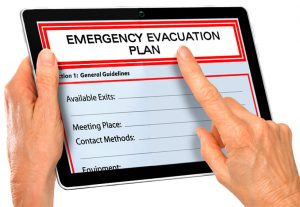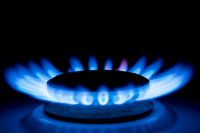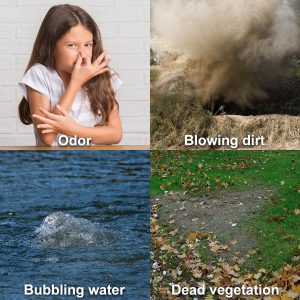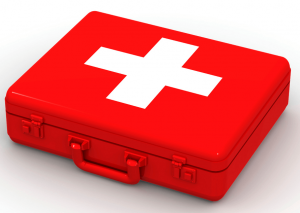In Case of Emergency (Gas)
Safety Drills
Go over your school’s gas emergency response plan with the class, and keep the following tips in mind:
- Know what the emergency plan is.
- Remember to move slowly and carefully.
- Don’t turn lights on or off.
- Don’t light matches or lighters.
- Don’t use a flashlight or telephone (even a cell phone) because an electric arc might ignite the gas.
- Leave doors open to ventilate the room after you are out.
Indoor Gas Leaks
If you smell a faint odor of gas, look for a pilot light that’s out on a gas range, water heater, or furnace.  If you see one, turn the appliance off and open windows—top and bottom—to let gas escape. Wait five minutes before relighting the pilot.
If you see one, turn the appliance off and open windows—top and bottom—to let gas escape. Wait five minutes before relighting the pilot.
- Don’t turn electrical switches on or off, light a match, or use a flashlight or telephone because an electric arc could ignite the gas, causing an explosion.
- If the odor is strong or persistent, do not open windows; instead, get everyone outdoors immediately.
- Don’t try to relight a gas furnace, water heater, or range until you are sure there’s no more smell of gas.
- If you smell gas and can’t find the source immediately, go to a safe location and call 911. {Utility Name} customers should also call the statewide emergency number at: {XXX-XXX-XXXX}.
Gas Pipeline Leaks
Leaks from natural gas pipelines, although rare, can be a fire hazard. Pipeline leaks usually smell like sulfur or rotten eggs—but not always. So don’t rely on your nose alone. Be alert for any of the following signs:
Warning Signs:
- A hissing or roaring sound
- Dirt blowing or spraying into the air
- Continuous bubbling in water
- Plants dead or dying for no apparent reason
What to Do:
- Do not use fire or electricity. Even the smallest spark from a cell phone, flashlight, or match could ignite the gas.
- Go far away from the area and do not return until safety officials say it is safe to do so.
- Report the leak to 911 and the local gas utility.
First Aid for Burns
If someone is burned, don’t panic. Administer first aid:
- Cool a burn by holding it under cold running water. Don’t use butter, ointment, or ice.
- Cover minor burns with a sterile bandage.
- If burns are severe, wrap patient in a clean sheet and cover with a blanket until trained medical assistance is available. Rush victim to a hospital or call 911.
